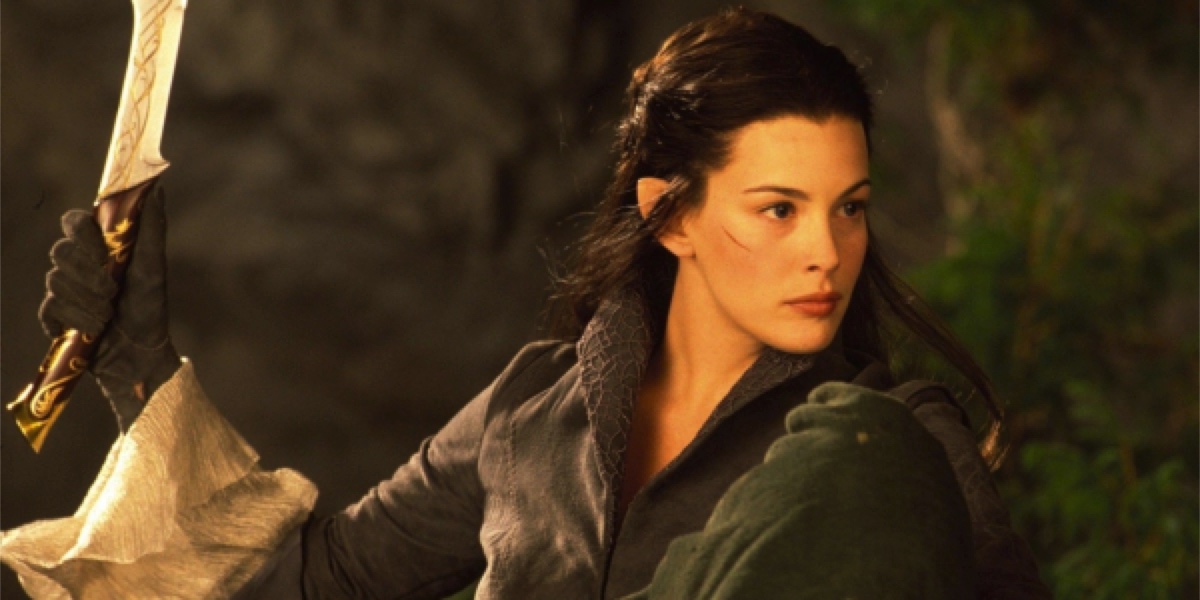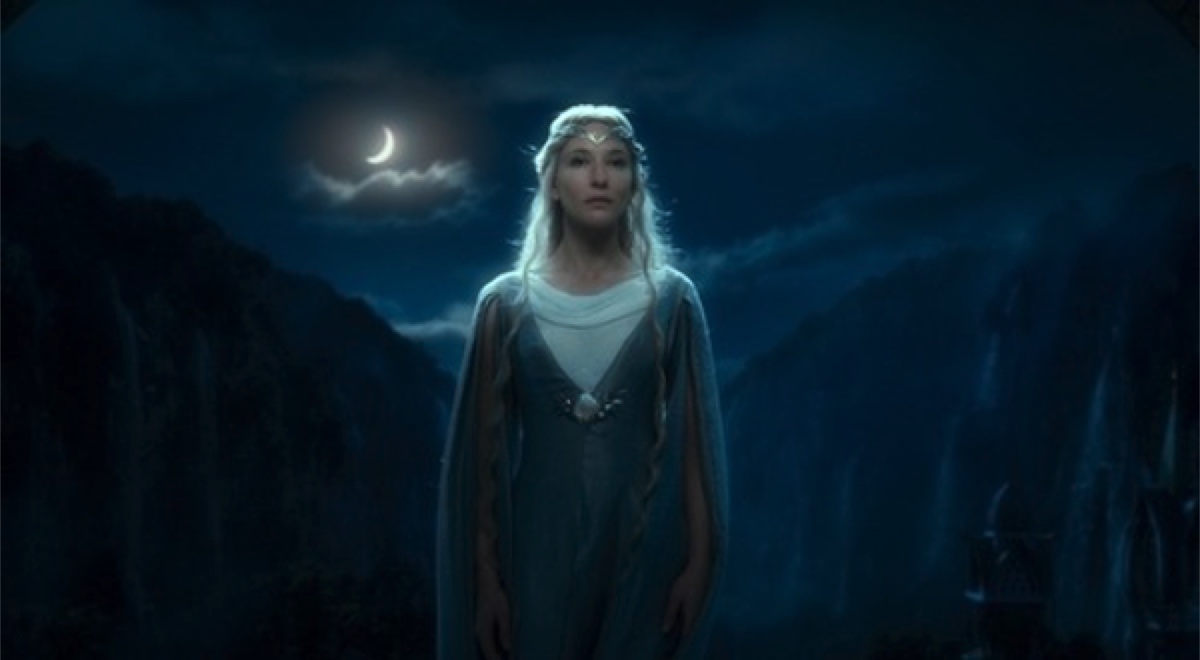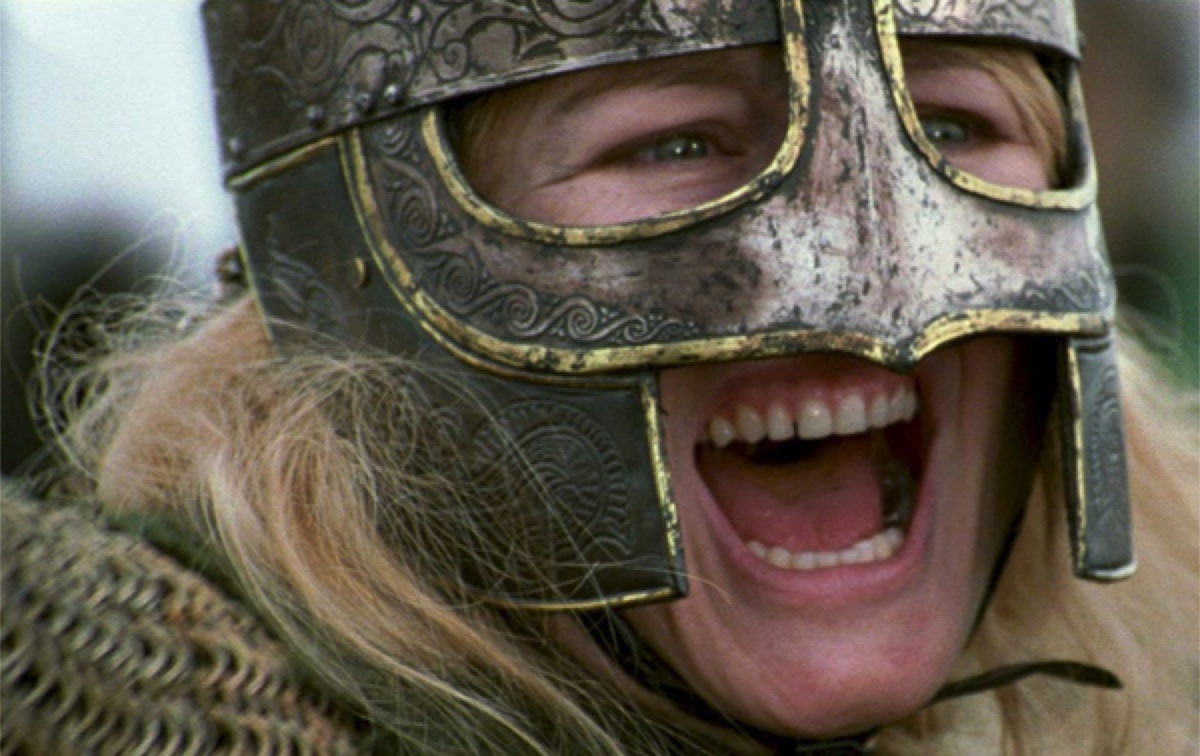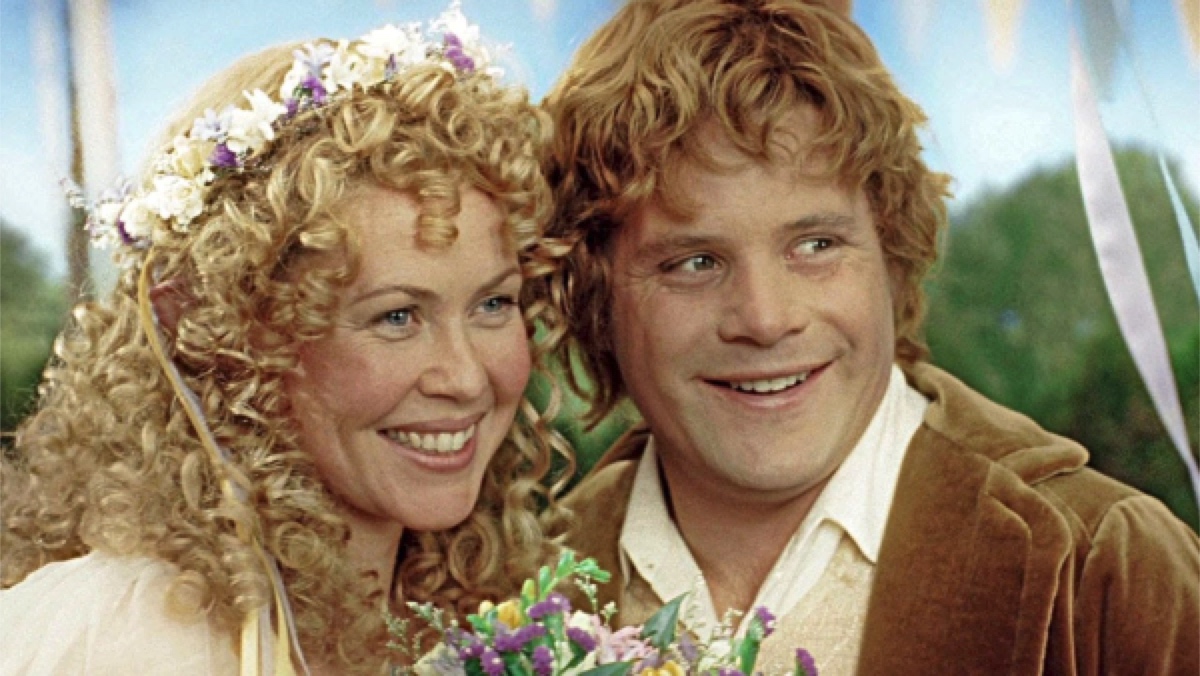Ideas of how a woman should be have changed throughout the years and this has been reflected in portrayals of women on screen. What hasn’t changed is what women are. The most timeless films are those which avoid dictating how women should be and succeed in touching on the truth of what women are.
The Lord of the Rings film trilogy has already earned its place in the hearts of movie lovers as a timeless classic. While the stories have, at times, been referred to as a ‘boys’ club,’ nothing could be further from the truth! Just as much of salvation history hinges on women, so too does the fight for the Middle Earth in the Lord of the Rings (LOTR). In Peter Jackson’s cinematic adaptation of J.R.R. Tolkien’s literary masterpiece, the female characters are not portrayed as how women ‘ought to be,’ but as women are.
Arwen

Liv Tyler as Arwen in The Fellowship of the Ring. © 2001 New Line Cinema. All Rights Reserved.
Arwen’s character in the LOTR trilogy sheds special light on women as life-bearers, and she does so consistently in each film. In The Fellowship of the Ring, Arwen risks her life to bring an injured and fading Frodo from the dangers of the wilderness into the safety of her home at Rivendell, bearing his precious life into a realm of healing. In The Two Towers, Arwen bears the life of her beloved Aragorn in her heart even as he journeys far from her, and through the spiritual connection that exists between them, she provides him consistent strength, especially when he is at risk. Finally, in The Return of the King, Arwen decides to leave her immortal elven people for a future with Aragorn among mortals. Although she knows this future will hold death, including her loss of Aragorn, she also foresees that it holds life - that she will bear Aragorn’s son. It is because of the hope and value of this life which she will carry for them both that she has the courage to leave all she has ever known to be with the man she loves. In all stages of her life, Arwen is a life-bearer.
Galadriel

Cate Blanchett as Galadriel. The Hobbit: An Unexpected Journey. © 2012 New Line Cinema. All Rights Reserved.
Galadriel’s character in the LOTR films is a rather enigmatic one. For anyone who had not read the books before having seen the films, it was unclear for the first half of her appearance in Fellowship whether she was a 'good guy’ or a ‘bad guy.’ As the films progress, however, we discover that Galadriel's profound wisdom and humility allow her to counsel both the smallest and the grandest players. She helps the humble hobbit, Frodo, to understand his path as he seeks to destroy the One Ring just as readily as she helps the ancient and renowned elven Lord Elrond to understand his own role in saving their threatened Middle Earth. Galadriel harnesses and shares the wisdom of her people, of her own experience, and her personal gifts to advise and guide those around her to a path of honor, freedom, and love. In all her actions, Galadriel is a counsellor.
Eowyn

Miranda Otto as Eowyn in The Return of the King. © 2003 New Line Cinema. All Rights Reserved.
Eowyn’s character is first introduced in The Two Towers. She is the niece of the King of Rohan, a nation of horse-lords known for their fierceness. Eowyn longs to fight alongside her kinsmen in battle, to protect the people she loves, but the battlefield is seen as the domain of men. Eowyn eventually disguises herself in a man’s armor to fight in the battle in The Return of the King and, in doing so, slays one of the most formidable foes of Middle Earth. Hers is one of the most epic exchanges in the entire film trilogy. The Witch King of Angmar mockingly tells the soldier before him “No man can kill me.” Eowyn rips off her helmet, revealing her distinctly feminine face, and replies “I am no man.” Yet Eowyn’s protective heart was at work long before this iconic scene. She had been one of the only people to stay by the side of her uncle during his bout with madness, offering what little protection she could against his manipulator at the risk of her own safety. She had been the one to sit by the side of her dying cousin to protect him from feeling abandoned at the hour of his death, his father too ill to be at his side. She also protected the small and vulnerable hobbit, Merry, from both the teasing of her kinsmen and from harm on the battlefield. For everyone that she loved, Eowyn was a protector.
Rosie

Sarah McLeod as Rosie Cotton and Sean Astin as Sam Gamgee in Return of the King. © 2003 New Line Cinema. All Rights Reserved.
Rosie has very little screen time in any of the LOTR movies, but she plays an important role, nonetheless. Though we know little of her character in general, we know that Rosie was someone who could inspire others. In particular, she inspired Samwise Gamgee, Frodo’s companion on the journey to destroy the Ring. Even before his journey, Rosie’s cheerfulness and loveliness moved the shy Sam to love her, although he never mustered the courage to act on it. Rosie’s goodness must have run far deeper than just cheeriness and loveliness though, because in the final movie, when Sam and Frodo are convinced that they are about to die, Sam begins to weep not because he is approaching death, but because he won’t have the chance to have a life with Rosie. Finally, when Sam returns home from his harrowing journey, carrying experiences and sorrows that would weigh on him the rest of his life, Rosie is able to inspire in him the confidence that, despite these burdens she could not fathom, he could have a future of hope, life, and goodness in a relationship with her. Rosie stirred to life a special hope in Sam. In her quiet, behind-the-scenes way, she was always an inspiration.
In Saint John Paul II's Theology of the Body, he describes the bodies of men and women as 'sacramental,' meaning they are different from one another in order to make visible different spiritual realities. He goes on to explain that women have a special capacity for receiving. This can come off as a very passive, sometimes even seeming a selfish type of action, but our LOTR women demonstrate that the opposite is true. To receive is not a passive acceptance of another’s giving, but rather an active welcoming, harboring, treasuring, nurturing, a sending forth and sharing of something precious.
Each of these women characters live their special ability to receive in a totally unique way. Arwen inspires, welcomes, nurtures, and faithfully protects the love of someone not of her own people in a way none of her kinsmen could, to the point that this love gave life to others. Galadriel received the thirteen men of the journeying Fellowship into her kingdom, welcoming them with hospitality, steadying them with wise counsel, nourishing them with gifts, and even protecting them with her wisdom and inspiration later in their journey. Eowyn receives into her heart the valor and courage of Merry, her little Hobbit friend, who was told he could not fight for those he loved because of his small size. Because she was able to hold his reality in a unique way, she also received him onto her own horse as she rode to battle, protecting him and fighting alongside him. Finally, Rosie was able to receive the love of Samwise Gamgee and everything that came with their married life - including the difficulties she knew would come from his experience of horrors beyond her own imagining. She received him unconditionally, for all of who he now was, and a precious family and history grew from her quiet nurturing and sharing of his love. None of these women were passive receivers, but rather actively welcomed their experiences, requiring an abundance of courage, strength, hope, and love.
Edith Stein once said that the world doesn’t need what women have, but rather, what women are. Pope John Paul II called the creative and unique expression of this gift of womanhood to the world ‘the feminine genius.’ In the LOTR films, these four important female characters bear witness to the feminine genius in their own unique ways. As life-bearers, counsellors, protectors, and inspirations, they reveal to the world what it truly means to receive. In doing so, they can inspire both male and female audience members in their pursuit of living self-giving lives. For in the end, the whole Church - men and women alike - are called to be “bride” to Christ the bridegroom, not as passive brides, but as people who receive the love of God in a way that calls forth all our strength and determination, resulting in life, freedom, and joy. Sacramentally, women represent and live this reality on earth in a very particular way. And the LOTR women show us all just how powerful and amazing it really is to be that kind of gift to the world.